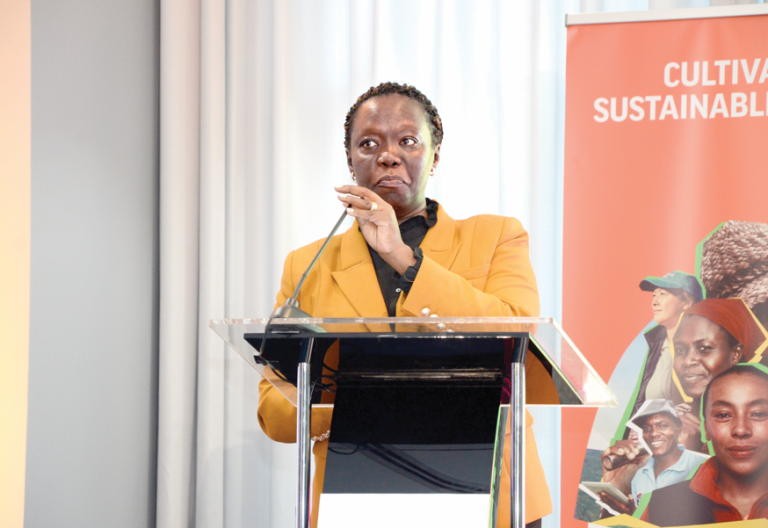High costs push Kenyan beans, peas farmers off global markets

Kenyan farmers are increasingly abandoning international markets for beans and peas, due to the high cost of production and exportation.
This was highlighted during the closure ceremony of the New Export Trade (NExT) Kenya Programme, which has been running for six years to enhance Kenya’s horticultural exports.
The programme, funded by the European Union (EU) with a budget of Sh650 million, aimed to improve Kenya’s horticultural value chains, increase employment, and strengthen food security.
“We have seen great improvements in our farming practices, but our major problem right now is the cost of production. Because of high cost of production, we are not competing fairly with other producers in the international markets,” said Christine Chesaro, Ag Director, Horticultural Crops Directorate at Agriculture and Food Authority (AFA).
Key drivers
According to her, exports for peas and beans have decreased by almost 50 per cent as many farmers, once reliant on European markets, are now shifting their focus to local markets, where they can sell their produce more easily and avoid the high costs associated with selling international.
She noted that the increasing costs of inputs such as fertilizers, pesticides, and labour have made it difficult for smallholder farmers to remain competitive in the export market. She revealed that the cost of labour has been rising, something that has significantly increased production expenses for farmers.
Many farmers rely on manual labor for planting, weeding, and harvesting and with wages going up, sustaining large-scale production for export has become financially challenging.
Speaking during the same event, Dr. Chagema Kedema, NExT Kenya Programme Coordinator, a program that was implemented by the Committee Linking Entrepreneurship-Agriculture-Development (COLEAD), said that pesticide residue is another major challenge causing farmers to abandon international markets.
Random sampling
According to him, the European Union randomly samples exports to assess the presence of pesticide residues. They analyze consignments to check for any pesticide residue. Unfortunately, for Kenyan produce, they have been detecting prohibited molecules or molecules at levels exceeding the acceptable limits within the EU.
“According to the Rapid Alert System for Food and Feed (RASFF), the number of detection cases of pesticide residues in Kenyan horticultural exports has increased from just 2 in 2018 to 41 in 2024. This sharp rise in detections may initially seem alarming, but it shouldn’t,” says Kedema.
According to him, the increase in detection cases is partly attributed to the overall rise in Kenya’s export volumes, meaning that more consignments are being sent to international markets, leading to higher chances of being sampled and tested. Additionally, the European Union has intensified its monitoring of pesticide residues in food imports, increasing the frequency of random sampling.
What is being done to reduce the cases? Kedema says that that is exactly what has been happening with the NExT project. Over the past five years, the programme has made remarkable strides in improving the competitiveness of Kenya’s horticultural exports.
Capacity building
Through targeted interventions based on demand, COLEAD has worked closely with over 182 beneficiaries, including small and medium-sized enterprises (SMEs), service providers, government institutions, and trade associations, to strengthen their capacity to meet the stringent sanitary and phytosanitary (SPS) standards set by key export markets, particularly the European Union.
“The project has been supporting the Kenyan horticultural sector to comply with the new EU Plant Health and food safety regulations covering pesticide residues and harmful organisms such as False Codling Moth (FCM) on roses and maximum residue level issues particularly on beans,” he said.
New guidelines
They also contributed to the development of Good Practice Guides (GPGs) for key horticultural value chains, including avocado, beans, and peas. These industry-specific guidelines were designed to help stakeholders meet sanitary and phytosanitary (SPS) standards as well as commercial quality requirements throughout the value chain. To ensure effective adoption, the guides were broken down into simplified dissemination materials tailored for different actors in the sector.
Additionally, a Training of Trainers (ToT) program was conducted, equipping industry experts with the necessary technical knowledge and training skills to support the wider rollout of these best practices. Through these efforts, they aimed to enhance compliance, improve product quality, and strengthen Kenya’s position in international horticultural markets.
“We also supported a study to identify the challenges affecting competitiveness of the Kenyan horticultural exports. Through this study, 122 bottlenecks were identified and the top 47 have been rationalized to inform development of the horticulture masterplan,” he adds.











